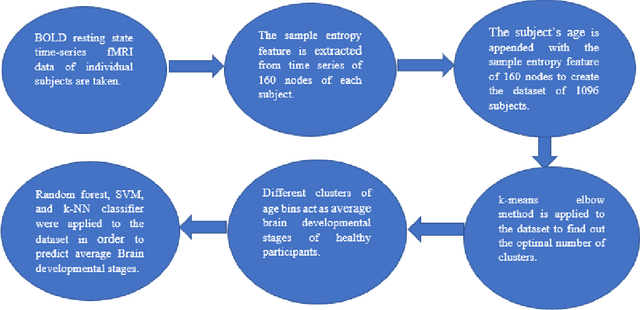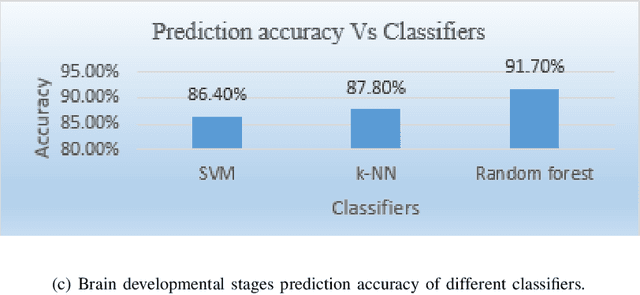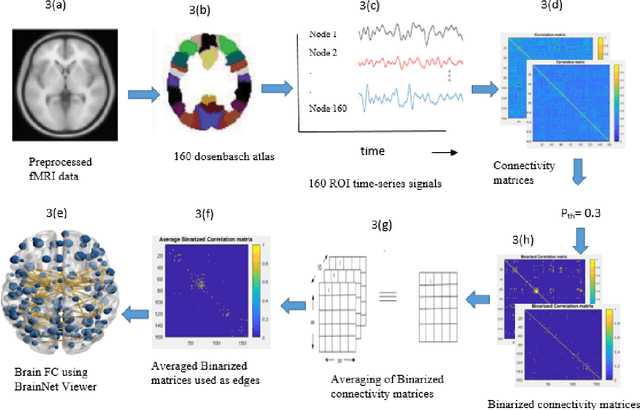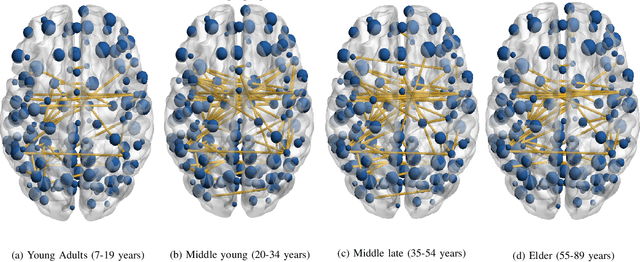Reorganization of resting state brain network functional connectivity across human brain developmental stages
Paper and Code
Jun 16, 2022



The human brain is liable to undergo substantial alterations, anatomically and functionally with aging. Cognitive brain aging can either be healthy or degenerative in nature. Such degeneration of cognitive ability can lead to disorders such as Alzheimer's disease, dementia, schizophrenia, and multiple sclerosis. Furthermore, the brain network goes through various changes during healthy aging, and it is an active area of research. In this study, we have investigated the rs-functional connectivity of participants (in the age group of 7-89 years) using a publicly available HCP dataset. We have also explored how different brain networks are clustered using K-means clustering methods which have been further validated by the t-SNE algorithm. The changes in overall resting-state brain functional connectivity with changes in brain developmental stages have also been explored using BrainNet Viewer. Then, specifically within-cluster network and between-cluster network changes with increasing age have been studied using linear regression which ultimately shows a pattern of increase/decrease in the mean segregation of brain networks with healthy aging. Brain networks like Default Mode Network, Cingulo opercular Network, Sensory Motor Network, and Cerebellum Network have shown decreased segregation whereas Frontal Parietal Network and Occipital Network show increased segregation with healthy aging. Our results strongly suggest that the brain has four brain developmental stages and brain networks reorganize their functional connectivity during these brain developmental stages.
 Add to Chrome
Add to Chrome Add to Firefox
Add to Firefox Add to Edge
Add to Edge